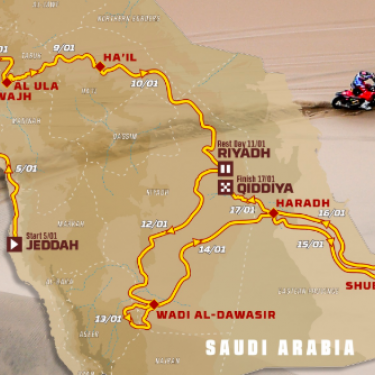Dakar Rally must not be used for Saudi propaganda purposes

Reporters Without Borders (RSF) calls on journalists, organizers and participants in the 2020 Dakar Rally, which will begin in the Saudi city of Jeddah on Sunday (5 January), to not serve as play actors in the Saudi regime’s propaganda operation and thereby deflect attention from Saudi Arabia’s other, less attractive, reality.
The decision to hold the prestigious Dakar Rally in Saudi Arabia for the first time has given the country’s rulers an unprecedented opportunity to refurbish their image and make the world forget their human rights violations, including their systematic suppression of media freedom.
The 2020 Dakar Rally’s participants and organizers, and the journalists covering it, will inevitably be dazzled by the desert’s beauty and the kingdom’s architectural wonders. But RSF urges them not to allow the Saudi regime to exploit their presence for its propaganda operation. They should neither forget nor help others forget the terrible nature of a regime based on political, social and cultural repression, media control, imprisonment of journalists and many other abuses.
“The cameras will show the undeniable beauty of the Saudi desert but they should not deflect attention from the country’s terrible realities,” RSF secretary-general Christophe Deloire said. “This rally will give journalists a unique opportunity to cross this vast country, one that is usually so hard to access. But we ask them to cover the race without forgetting that it is also a PR operation.”
Despite the talk of reform and despite the introduction of some actual reforms, Mohammad bin Salman has stepped up the repression since his appointment as crown prince in 2017. Political opponents of all kinds and in all spheres are being monitored and persecuted with unprecedented intensity.
The number of journalists and citizen-journalists in detention had tripled in the past two years. Most are being held arbitrarily. Journalists can be fired or detained under criminal code provisions or under the terrorism or cybercrime laws on charges of blasphemy, insulting religion, inciting chaos, jeopardizing national unity or “harming the image and reputation of the king and the state.”
Few people will have forgotten the fate of Jamal Khashoggi, the well-known Saudi dissident journalist who was murdered inside the Saudi consulate in Istanbul, Turkey, in October 2018 and whose body was then dismembered in order to facilitate its removal.
Saudi Arabia is ranked 172nd out of 180 countries in RSF’s 2019 World Press Freedom Index.



